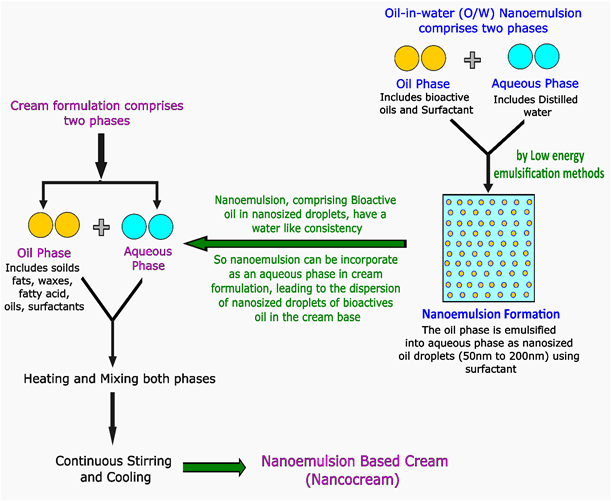
Formulation and Evaluation of Nanoemulsion-Based Cream using Green Ingredients Exhibiting Enhanced Performance Characteristics
Daphne Nguyen, Manish Kumar
Том 87 №2
560 просмотров;
The present study focuses on the formulation and evaluation of a nanoemulsion-based cream (nanocream) using green ingredients, aimed at enhancing performance, stability, and sustainability. The nanoemulsion was developed through the low-energy phase inversion temperature (PIT) method, which successfully protected green bioactive compounds like vitamin E, cinnamon oil, jojoba oil, and peppermint oil from degradation. A series of nanoemulsions were prepared using varying ratios of oils and surfactants and evaluated for stability, transparency, and droplet size. The optimized nanoemulsion, with a mean droplet size of 121.3±1.1 nm and a low polydispersity index (PDI) of 0.094±0.001, demonstrated high uniformity and stability. This optimized nanoemulsion was further used as the cream’s aqueous phase, forming a nanocream that exhibits enhanced permeation of nanoscale bioactives through a membrane and improved overall performance characteristics. In vitro membrane permeation studies revealed that the optimized nanocream achieved a permeation rate of 97.1%, substantially outperforming the control cream. In vitro antimicrobial studies showed comparable efficacy to standard market preparations containing synthetic agents. The nanocream also demonstrated long-term stability over six months, maintaining structural integrity without phase separation or significant changes in pH and spreadability. The nanoemulsion-based cream formulated with eco-friendly ingredients hence offers enhanced skin permeation, superior bioactive delivery, and stable performance, making it a promising candidate for topical skincare and antimicrobial applications.